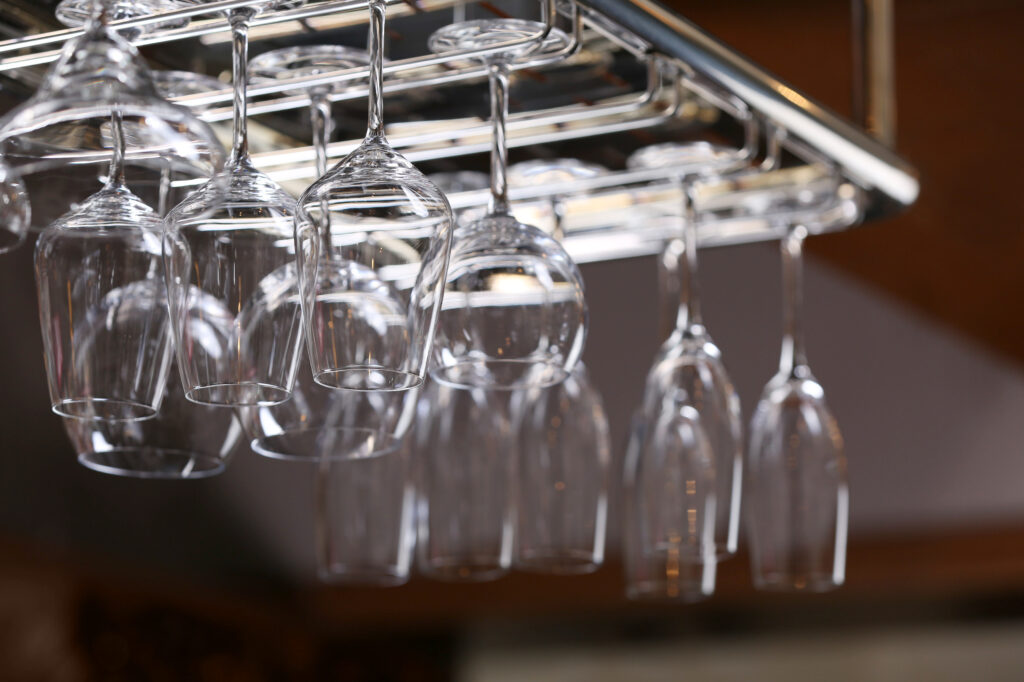Wine is a complex and delicate beverage that can be enhanced or diminished by the type of glass it is served in. Choosing a quality wine glass is not only a matter of aesthetics, but also of functionality and enjoyment. It can significantly impact your wine tasting experience.
Learn More:
It’s Time for Wine – The 2023 Global Outlook for the Wine Industry
For wine glasses made purely out of clear glass, we look at the annealing process. The annealing test is a process whereby we assess the quality and workmanship of the annealing process for glass products. The assessment determines the levels of residual stress present within the glass after annealing has been carried out and examines for fractures.

There are also some other factors affecting the quality of a wine glass. We will explore and provide some tips on how to choose the wine-serving glass here:
1. Size & Shape
The size and shape of the wine glass affect the aroma, taste, and overall wine-drinking experience. The size affects how much wine is poured at a time while the shape affects the taste of the wine inside by channeling the aromatics and impacting the flavor of the wine. They influence the amount of ethanol vapor that escapes from the wine. Ethanol vapor can mask the delicate aromas of the wine and impact taste perceptions of bitterness and sweetness.
The unique shape of a wine glass concentrates the actual aromas of the wine into the center of the glass and deliver to your nose. A larger glass with a narrower rim allows some aeration for the flavors and aromatics to develop, captures those aromas and deliver them directly to your nose so as to enhance the wine’s bouquet. However, in a smaller glass, it is tough for the bouquet to escape and will slightly mute the overall taste.
2. Rim Thickness
The glass thickness of the rim can affect how the flow of wine from glass to mouth, therefore impacting how you taste the wine. Also, the thinner the rim, the less the glass distracts from the wine as you sip.
A thin-cut rim with no lip will allow the wine to reach your tongue more smoothly while a thicker, more rolled one may inhibit smooth flow onto your tongue and impact acidity and harshness of the wine. However, thinner glasses are more fragile, may be less durable and not easy to store.

3. Material
The most common materials for wine glass production are crystal and glass.
Crystal glasses are more delicate and elegant and are considered to be the most luxurious glass. Traditional crystal contains minerals, which strengthen the material and make it possible to produce durable but thin wine glasses. The crystal glass is rougher than regular glass and this roughness creates turbulence in the wine. However, typically crystal contains some lead, which may harm your health as lead oxide can be released into beverages from the glassware.
Glass glasses, on the other hand, are typically more traditional and affordable. Glass is the ideal material for wine glasses, it helps keep wine at the optimal temperature as it does not conduct temperature easily. Also, glass glasses are non-porous and dishwasher-safe, making them easy to clean. But they are less durable than crystal glasses, they can easily break. Also, most glass glasses will have a lip at the rim for durability, which is not a desirable feature for wine enjoyment.
Therefore, choosing the right wine glass can impact and enhance your wine-drinking experience! Look for high-quality wine glasses, along with outstanding drinks, at our Hong Kong International Wine & Spirits Fair today:
You can also find the same at our e-Marketplace:
This article is originally published by Bureau Veritas:
Bureau Veritas is one of the solution providers that can assist and solve product testing needs. We offer extensive capabilities and global experience in analytical testing and consulting. If you have any comments and/or questions about this article, please visit https://www.cps.bureauveritas.com or contact Bureau Veritas CPS HK.





















